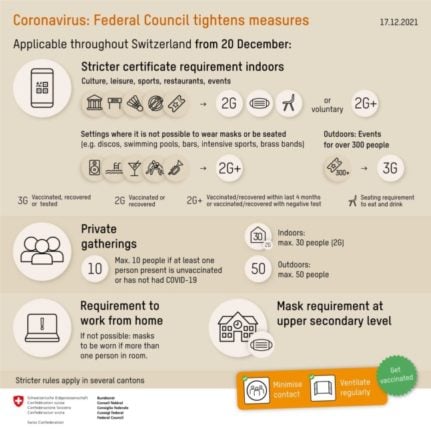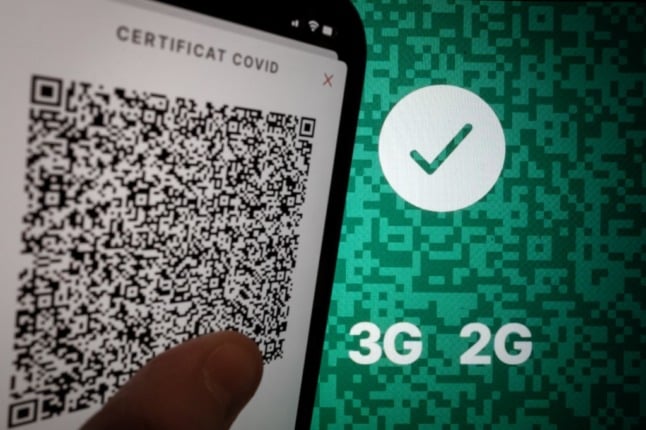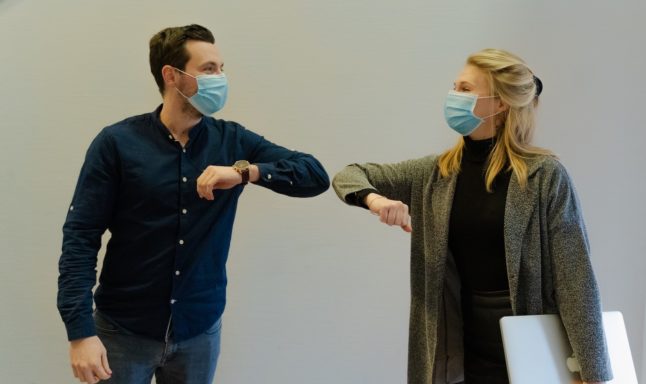Switzerland will tighten Covid measures amid a worsening situation in the country, the government announced on Friday afternoon.
The measures will apply from Monday, December 20th.
While the Covid certificate will be restricted only to the vaccinated and recovered, the toughest measures forecast last weekend – which included the complete closure of bars, restaurants and events – have been left off the table.
‘They endanger everyone’: Your verdict on Switzerland’s ‘lockdown for the unvaccinated’
Under the new rules, only vaccinated and recovered people will be able to access restaurants, cultural, sports and leisure facilities as well as events.
Masks will be required and people must also have an allocated seat.
Clubs, discos and bars without allocated seating will be restricted to vaccinated and recovered people who can also show a recent negative test. This is known as 2G+.
2G+ will also cover people who have had a recent booster. If you have had a booster shot in the previous four months, then 2G+ will apply and you will not need to show an additional negative test.
Negative tests can be up to 72 hours old if they are PCR tests (individual or pooled), or up to 24 hours old if they are antigen tests.
Self-tests are not sufficient for the 2G-Plus rule.
EXPLAINED: What is Switzerland’s 2G-Plus rule?
The government has also agreed to cover the costs of testing for the purposes of the Covid certificate. Testing for travel abroad will not be covered by the government.
The entry rules will be relaxed, whereby people only need to show one test on entry (either PCR or antigen). The PCR test can be up to 72 hours old, the antigen test must be less than 24 hours old.
Vaccinated and recovered people do not need to show another test 4-7 days after.
More information about the changes is available at the following link.
READ MORE: Switzerland to relax arrival test rules from Monday
Private meetings will also be restricted. Indoors where at least one unvaccinated person is present, the maximum number of people is ten. Only people aged 16 and over count towards the tally.
If the entire group is vaccinated, the limit is 30 people – and 50 people if the event takes place outside.
Working from home will again be mandatory for everyone who is able to do it.
While the specifics of the working from home requirement have not been laid out expressly, they are expected to resemble those which were in place last winter.
In effect, anyone who can work from home must do so. For instance, this will be OK for officer workers, but not for bakers (unless they have a tremendous home oven set up).
More information is available at the following link (in relation to the previous working-from-home requirement).
EXPLAINED: What are Switzerland’s working-from-home rules?
Not urgent surgeries will be postponed and masks will be required in secondary schools.
The measures are in place until at least January 24th, 2022, but look likely to be extended.
The official government page is available here.




 Please whitelist us to continue reading.
Please whitelist us to continue reading.
Member comments